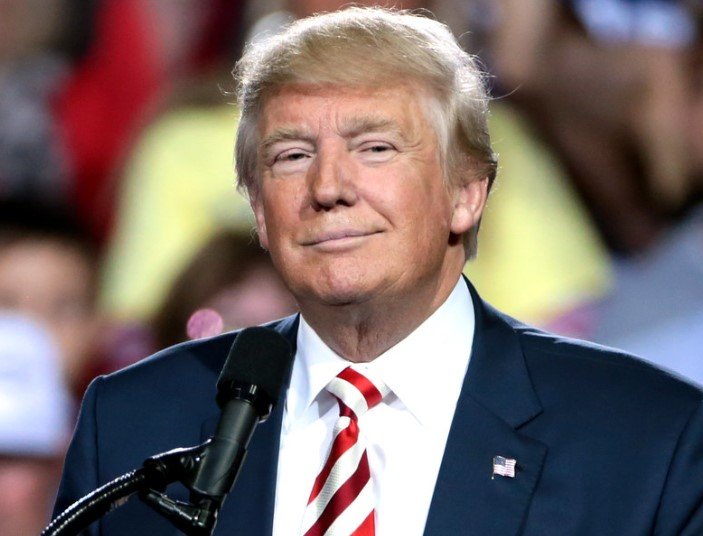Former President Questions $21 Million Allocation for Voter Turnout
Donald Trump has reignited tensions over U.S. foreign aid spending, this time alleging that the Biden administration funneled funds into influencing India’s elections. Speaking at the FII PRIORITY Summit in Miami, Trump claimed that $21 million was spent on voter turnout efforts in India, implying an attempt to sway electoral outcomes.
Trump Slams Biden’s Foreign Spending
The former president did not hold back in his remarks. “Why do we need to spend $21 million on voter turnout in India? I guess they were trying to get somebody else elected,” he stated before an audience of business leaders and policymakers. His remarks come just days after his backing of the Department of Governance Efficiency’s (DOGE) move to slash the controversial funding.
Trump framed the expenditure as an example of misguided priorities, questioning why U.S. taxpayer money was being used in a nation that he described as financially strong. “They have a lot more money. They are one of the highest taxing countries in the world in terms of us; we can hardly get in there because their tariffs are so high. I have a lot of respect for India and their Prime Minister, but giving USD 21 million for voter turnout?” he said at Mar-a-Lago.

The DOGE Cuts and Their Impact
DOGE, an oversight body focused on government efficiency, has made several spending cuts, including the India voter turnout program. While specific details of the initiative remain scarce, the move has raised questions about USAID’s role in foreign elections.
- The $21 million was originally earmarked under USAID initiatives supporting democratic engagement.
- USAID has historically funded voter education and civic participation programs worldwide.
- India’s government has not formally commented on Trump’s allegations but has been known to resist external political influence.
Trump’s statements add fuel to long-standing debates over the extent of U.S. involvement in foreign democracies. While USAID has defended similar efforts in other nations as support for democratic processes, critics argue that such programs can be perceived as interference.
India’s Response and Diplomatic Repercussions
New Delhi has yet to issue an official statement regarding Trump’s remarks. However, Indian officials have previously expressed concerns over foreign influence in domestic political affairs. The Modi government has taken a hard stance on external funding for NGOs and electoral groups, tightening regulations in recent years.
Trump’s comments could also have broader diplomatic ramifications. While his personal rapport with Prime Minister Narendra Modi was well-publicized during his presidency, his stance on trade and tariffs often put him at odds with India’s economic policies. His criticism of India’s high tariffs and his decision to end preferential trade benefits under the Generalized System of Preferences (GSP) in 2019 remain contentious points in U.S.-India relations.
Election-Year Politics and Broader Implications
Trump’s remarks come at a crucial time as he campaigns for another term in the White House. His attacks on Biden’s foreign policy align with his broader America-first rhetoric, emphasizing domestic priorities over overseas spending.
Meanwhile, India is gearing up for its own general elections, making any claims of foreign interference particularly sensitive. Accusations of election meddling, whether substantiated or not, could become a flashpoint in diplomatic discussions between Washington and New Delhi.
As the debate over U.S. aid spending continues, the controversy underscores deeper questions about transparency, influence, and the role of foreign assistance in shaping global democracy.
